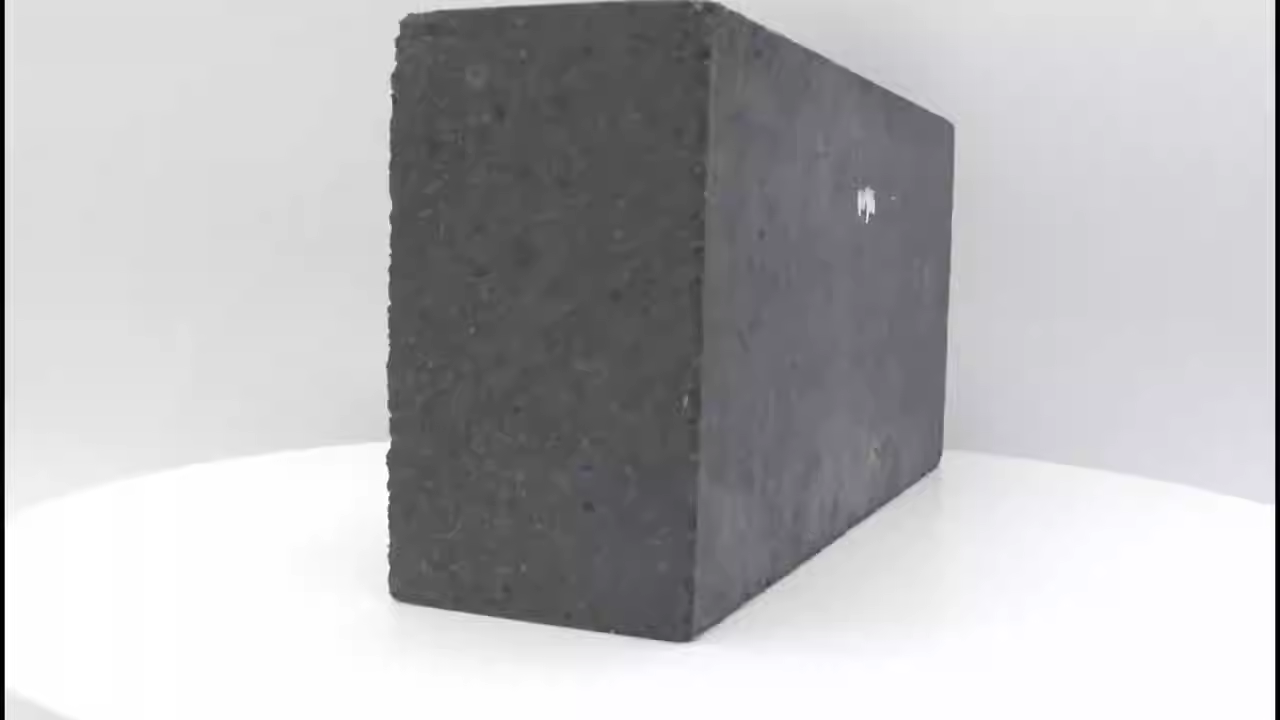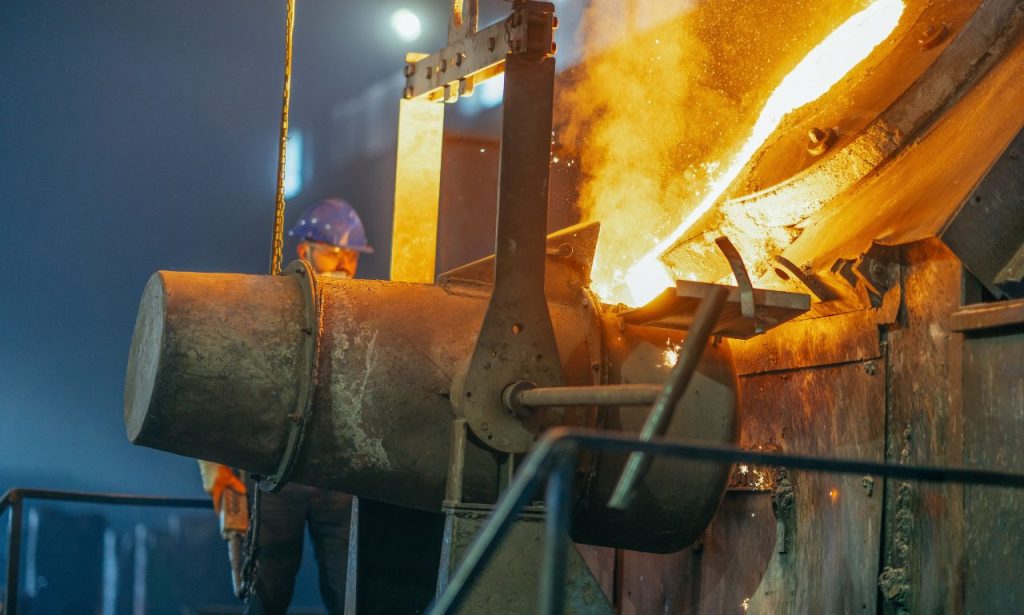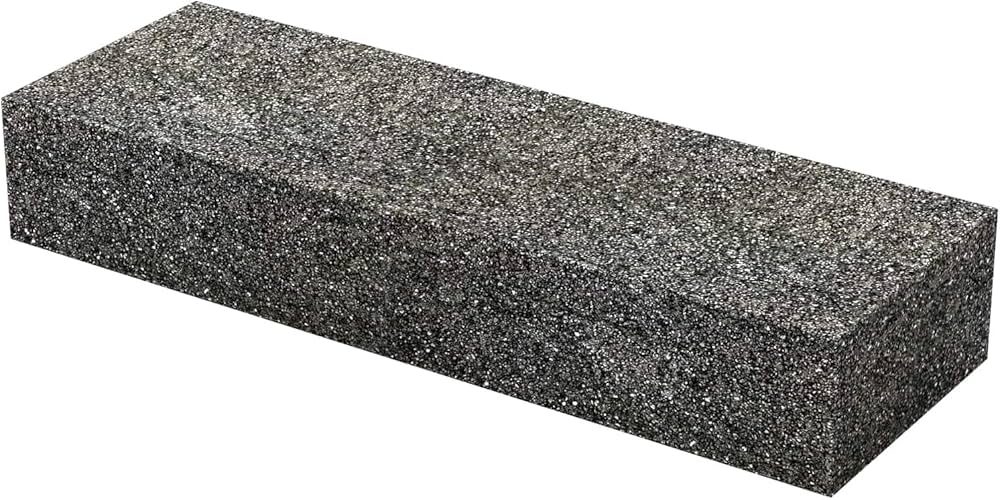In the realm of high-temperature industrial processes, the materials that stand between relentless heat and structural integrity are absolutely critical. Enter silicon carbide bricks—a powerhouse component that’s reshaping what’s possible in the refractory industry.
Properties of Silicon Carbide Bricks
Thermal Conductivity
Imagine dealing with temperatures that could melt steel, and needing materials that not only withstand such extremes but perform efficiently while doing so. That’s where silicon carbide bricks shine.
Silicon Carbide Bricks exceptional thermal conductivity allows them to rapidly transfer heat. This means less thermal stress on the material and more uniform temperatures throughout your furnaces or reactors. In industries where every degree counts, this property is a game-changer.
Chemical Resistance

While other materials might crumble or corrode under such conditions, silicon carbide bricks laugh in the face of chemical adversity.
Their inherent chemical resistance ensures that they remain stable and robust, even when facing aggressive agents. This makes them the ideal choice in industries like metallurgy and chemical processing, where durability can’t be compromised.
Durability
Silicon carbide bricks offer unparalleled durability, standing up to mechanical wear and tear like a champ. Their hardness rivals that of diamonds, which means they resist abrasion incredibly well. Whether it’s heavy loads or constant use, these bricks keep on keeping on, ensuring your operations run smoothly.
Types of Silicon Carbide Bricks
Depending on their bonding materials and manufacturing processes, different types bring unique strengths to the table. Understanding these differences is key to choosing the right brick for your specific needs.
Clay Bonded
Clay bonded silicon carbide bricks are the stalwarts of traditional refractory applications. By combining silicon carbide grains with clay as the bonding agent, these bricks strike a balance between performance and cost-effectiveness.
They offer decent thermal shock resistance and are perfect for environments where temperatures are high but not extreme. If you’re looking for a reliable option without breaking the bank, clay bonded bricks are a solid choice.
Mullite Bonded
Mullite bonded silicon carbide bricks step up to the plate. Mullite, an aluminum silicate mineral, adds high-temperature stability and strength to the mix. These bricks excel in environments with both intense heat and mechanical stress. Think glass furnaces or high-temperature kilns, places where ordinary materials just won’t cut it.
SiO₂ Bonded
When oxidation is a concern, SiO₂ bonded silicon carbide bricks come into play. The silica bond enhances the brick’s resistance to oxidizing atmospheres, making them ideal for applications like coke ovens or annealing furnaces. Their ability to maintain structural integrity in reactive environments means fewer failures and longer service life.
Nitride Bonded
For the most demanding conditions, nitride bonded silicon carbide bricks are the top-tier choice. The nitride bond provides outstanding strength, abrasion resistance, and stability at high temperatures. These bricks are often found in blast furnace linings or any setting where both thermal and mechanical conditions are extreme. When only the best will do, nitride bonded bricks deliver performance that won’t disappoint.
Manufacturing Processes
Understanding how silicon carbide bricks are made isn’t just for materials scientists. The manufacturing process directly impacts the brick’s properties and performance, so it pays to know what’s going on behind the scenes.
Silicon Infiltration Reaction Sintering
One of the most advanced methods for producing silicon carbide bricks is silicon infiltration reaction sintering. Here’s how it works: a shaped body made of carbon or silicon carbide is infiltrated with molten silicon. The silicon reacts with the carbon to form additional silicon carbide, resulting in a dense, strong brick with minimal porosity. This process enhances the mechanical strength and thermal conductivity of the brick, making it suitable for the most demanding applications.
Impact of Manufacturing on Performance
Why does manufacturing matter? Because the way a brick is made affects everything from its density to its resistance to thermal shock. A controlled sintering process ensures uniformity, which translates to predictable performance. Inconsistent manufacturing can lead to weak spots, higher porosity, and ultimately, premature failure. When selecting silicon carbide bricks, knowing how they’re produced can give you confidence that they’re up to the task.
Applications of Silicon Carbide Bricks
Hot Metal Tanks

In the steel industry, hot metal tanks hold molten iron at temperatures upwards of 1,500°C (that’s over 2,700°F!). Lining these tanks with silicon carbide bricks is essential. Their high thermal conductivity ensures efficient heat management, while their durability withstands the constant chemical and mechanical stresses. The result? Safer operations and longer lifespans for critical equipment.
Furnaces
Whether it’s producing glass, smelting metals, or firing ceramics, furnaces are the backbone of many industries. Silicon carbide bricks line the insides of these furnaces, providing thermal insulation that doesn’t sacrifice strength. Their ability to handle rapid temperature changes without cracking makes them indispensable. Plus, their chemical resistance ensures that they won’t degrade when exposed to corrosive gases or slags.
Other High-Temperature Applications
Think beyond the usual suspects. Silicon carbide bricks are also used in waste incinerators, where they withstand not only high temperatures but also the corrosive attacks of various waste products. They’re found in aluminum reduction cells, where their resistance to molten salts is crucial. Even rocket nozzles and combustion chambers benefit from the unique properties of silicon carbide. Wherever extreme conditions exist, these bricks rise to the occasion.
Health and Safety Considerations
Handling Precautions
When working with silicon carbide bricks, always wear appropriate protective gear—gloves, safety glasses, and sturdy footwear are a must. The bricks can have sharp edges, and dropping one on your foot is no joke. If you’re cutting or machining the bricks, using dust extraction systems is crucial. Silicon carbide dust isn’t something you want to inhale.
Exposure Risks
Prolonged exposure to silicon carbide dust can lead to respiratory issues. It’s not just about immediate discomfort—chronic exposure has been linked to more severe health problems. Ensure that any work area where dust is generated is well-ventilated, and that workers have access to proper respiratory protection. Remember, safety isn’t an afterthought; it’s part of doing the job right.
Regulatory Compliance
Compliance with health and safety regulations isn’t optional—it’s mandatory. Familiarize yourself with local and international standards related to refractory materials and silica exposure. This includes guidelines from organizations like OSHA (Occupational Safety and Health Administration) or the European Agency for Safety and Health at Work. Staying compliant not only protects your workers but also shields your company from legal repercussions.
How to Choose the Right Silicon Carbide Bricks
Selecting the perfect brick involves more than just picking the one with the highest specs. Here’s how to make an informed decision.
Industrial Needs
Start by conducting a thorough assessment of your operational requirements. What are the maximum temperatures involved? Are there chemical agents that the bricks will be exposed to? What kind of mechanical stresses are expected? By answering these questions, you can narrow down the types of silicon carbide bricks that are suitable for your application.
Manufacturer Reliability
All bricks are not equal, and the manufacturer plays a significant role in quality. Look for manufacturers with a solid reputation, certifications, and a history of supplying to reputable companies. Customer testimonials and case studies can provide insight into a manufacturer’s reliability. Don’t be swayed by the lowest price—investing in quality pays off in the long run.
Specific Solutions
Sometimes, off-the-shelf products won’t meet your needs. Many manufacturers offer customization options, from adjusting the brick’s dimensions to tweaking its composition for enhanced properties. Don’t hesitate to discuss bespoke solutions with your supplier. Tailoring the brick to your specific requirements can lead to better performance and efficiency.
Leading Manufacturers in the Industry
RS Refractory
RS Refractory offers a comprehensive range of silicon carbide bricks, each engineered to meet specific industrial demands. With a strong focus on research and development, RS Refractory continually enhances their products to stay ahead of industry needs. Their customer support ensures that you’re not just buying a product, but also gaining a partner in your industrial endeavors.
Kerui Refractory
With decades of experience, they’ve honed their manufacturing processes to produce silicon carbide bricks that excel in performance and consistency. Their expertise isn’t limited to standard products, they also offer custom solutions tailored to unique challenges. Kerui’s global presence means they’re familiar with international standards, making them a trustworthy choice for clients worldwide.
Rongsheng

Rongsheng has built a reputation for delivering high-quality refractory materials at competitive prices. Their silicon carbide bricks are no exception. What sets Rongsheng apart is their integrated approach, they control every aspect of production, from raw materials to final inspection. This vertical integration ensures traceability and quality control at every step. For businesses seeking a dependable supplier, Rongsheng ticks all the boxes.
Ready to transform your high-temperature processes with silicon carbide bricks that deliver on every promise? Don’t wait, elevate your operations to new heights of efficiency and durability.
ALSO READ: How to Get Commercial Pressure Washing Jobs
FAQs
Silicon carbide bricks outperform traditional refractory bricks in several ways. They offer higher thermal conductivity, better chemical resistance, and greater durability. This means they can handle more extreme environments and last longer, reducing maintenance costs.
While they excel in high-temperature settings, silicon carbide bricks can also be used in lower-temperature applications that require exceptional durability or chemical resistance. However, for purely low-temperature needs, other materials might be more cost-effective.
The lifespan varies depending on the application and operating conditions. However, due to their durability and resistance to wear, silicon carbide bricks often outlast other refractory materials, offering extended service life and reduced downtime.
While there are other refractory materials like zirconia or alumina bricks, none offer the same combination of thermal conductivity, chemical resistance, and durability as silicon carbide bricks. The choice ultimately depends on the specific requirements of your application.





